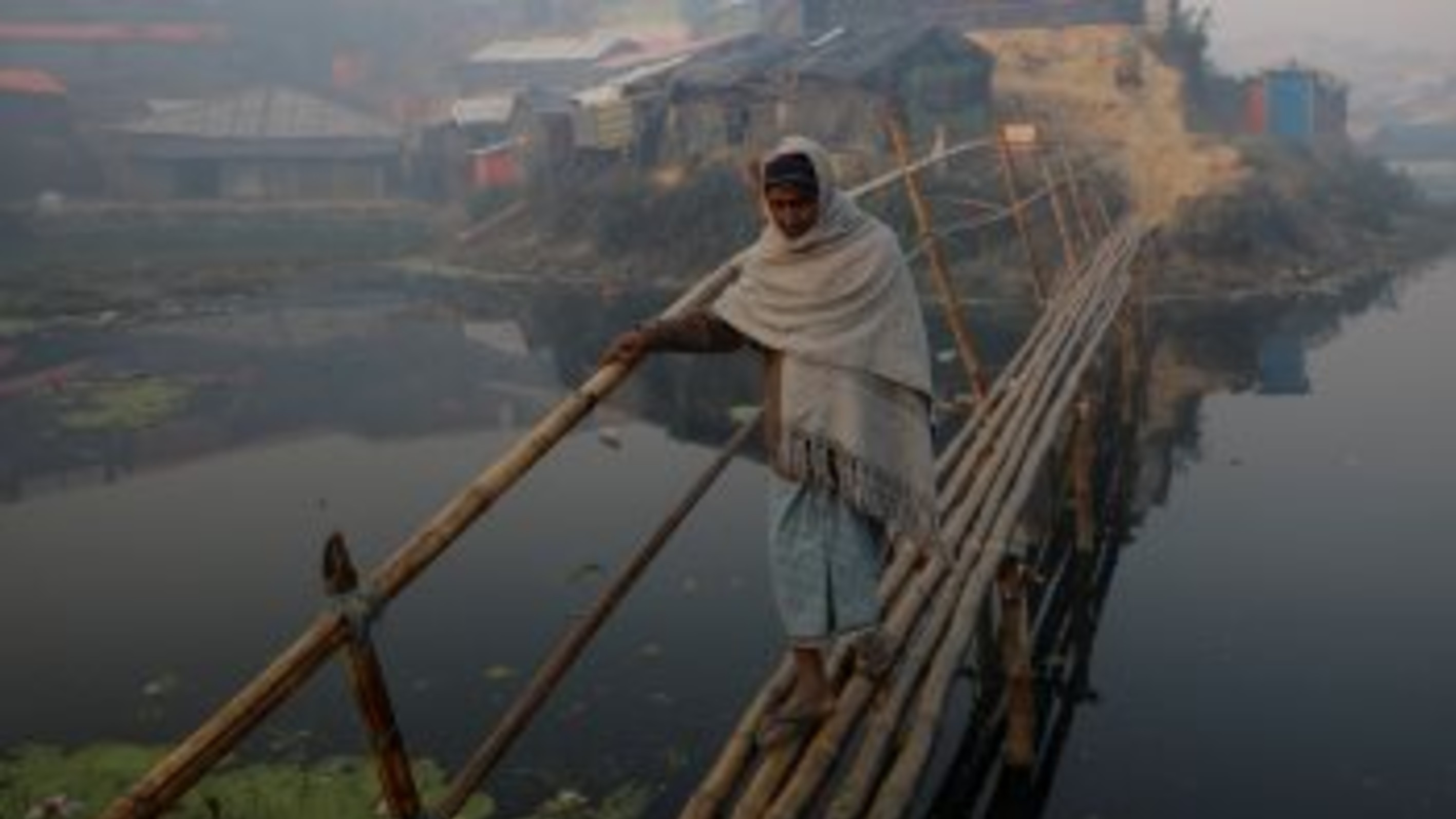News

Female Nobel laureates in Bangladesh to meet Rohingya women
DHAKA, Bangladesh (AP) — Three female Nobel Peace laureates began a weeklong trip to Bangladesh on Saturday to meet Rohingya Muslim women who were tortured and raped by soldiers in Myanmar before fleeing the country.
During their visit, Iran's Shirin Ebadi, Yemen's Tawakkol Karman and Northern Ireland's Mairead Maguire will assess the violence against the Rohingya women and the refugees' overall situation, according to the Nobel Women's Initiative, a platform of six female peace laureates established in 2006.
About 700,000 Rohingya Muslims have fled army-led violence in Buddhist-majority Myanmar since late August and are living in Bangladeshi refugee camps. Myanmar's security forces have been accused of atrocities against the Rohingya, including killing, rape and arson. The United Nations and the United States have described the army crackdown as "ethnic cleansing."
Sunday is the six-month anniversary of the start of the refugee crisis, Asia's worst since the Vietnam War.
In an email to The Associated Press on Saturday, Karman said that she and her colleagues were standing "in solidarity with displaced Rohingya women and calling for Rohingya women's voices to be heard."
She said Rohingya women are twice victimized — for being Rohingya and for being women — and "are affected by the ethnic cleansing and are also subject to high levels of sexual and gender-based violence."
"Rohingya women's unique needs are largely unmet in refugee camps in Bangladesh," she said. "Less than 20 percent of displaced Rohingya women who have survived sexual violence have access to post-rape care."
Human Rights Watch has said in a report that Myanmar security forces raped and sexually assaulted women and girls before and during major attacks on villages.
Karman said Saturday that "accountability and justice" for crimes against the Rohingya people must be a priority for the international community.
"The refugee problem stems from the crimes against humanity being committed by the Myanmar military and government against the Rohingya," she said in the email.
The laureates will meet Bangladeshi Prime Minister Sheikh Hasina and other officials and volunteers during their trip.
Bangladesh and Myanmar signed an agreement late last year to start repatriation of the Rohingya, but the process, which was supposed to start last month, got delayed because of lack of preparation and security concerns.
The August violence erupted after an underground insurgent group, the Arakan Rohingya Salvation Army, attacked security outposts in Myanmar's Rakhine state. In retaliation, the military and Buddhist mobs launched "clearance operations" against Rohingya.
The Rohingya have long been treated as outsiders in Myanmar, even though their families have lived in the country for generations. Nearly all have been denied citizenship since 1982, effectively rendering them stateless. They are denied freedom of movement and other basic rights.
U.N. refugee chief Filippo Grandi told the Security Council last week that conditions aren't right for Rohingya to voluntarily return because Myanmar hasn't addressed their denial of rights. Grandi also said Rohingya are still fleeing Myanmar and thousands more are expected to leave.
Bangladesh says more than a million Rohingya are currently living in Bangladesh.
